Empowering Women and Nourishing Communities: The Story of a Community-Based Kitchen in Ramtha

The Ramtha community-based kitchen exemplifies WFP's commitment to sustainable development by investing in women’s skills and capacities.
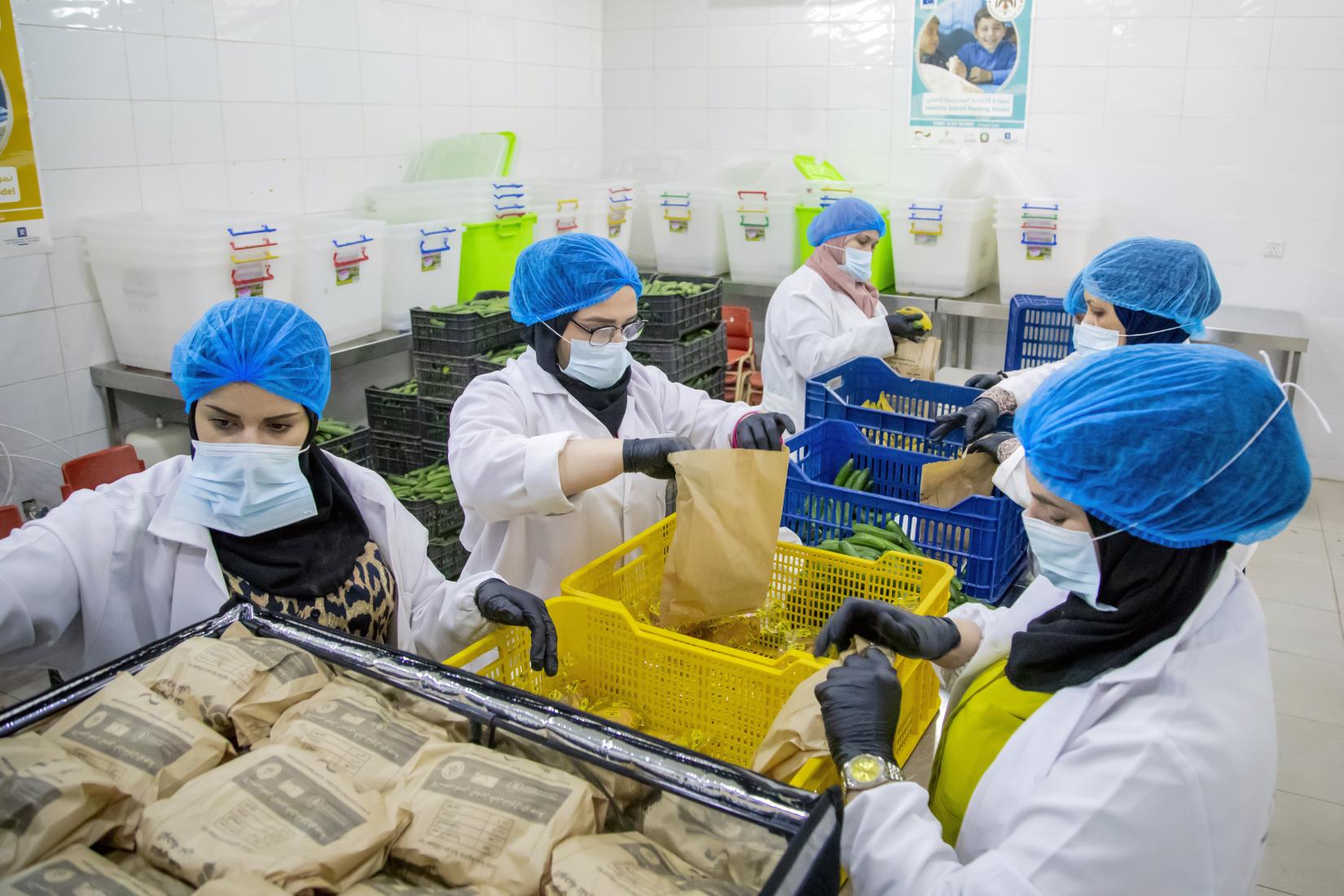
In the heart of Ramtha in northern Jordan, a small community-based kitchen supported by the World Food Programme is empowering women and catalyzing the local economy. Producing 13,000 school meals daily as part of the National School Feeding Programme, it stands as one of ten kitchens across six governorates preparing healthy meals to feed schoolchildren in poverty pockets. This kitchen has become a symbol of resilience and progress, employing over 30 women who have embraced newfound skills and roles within their community.
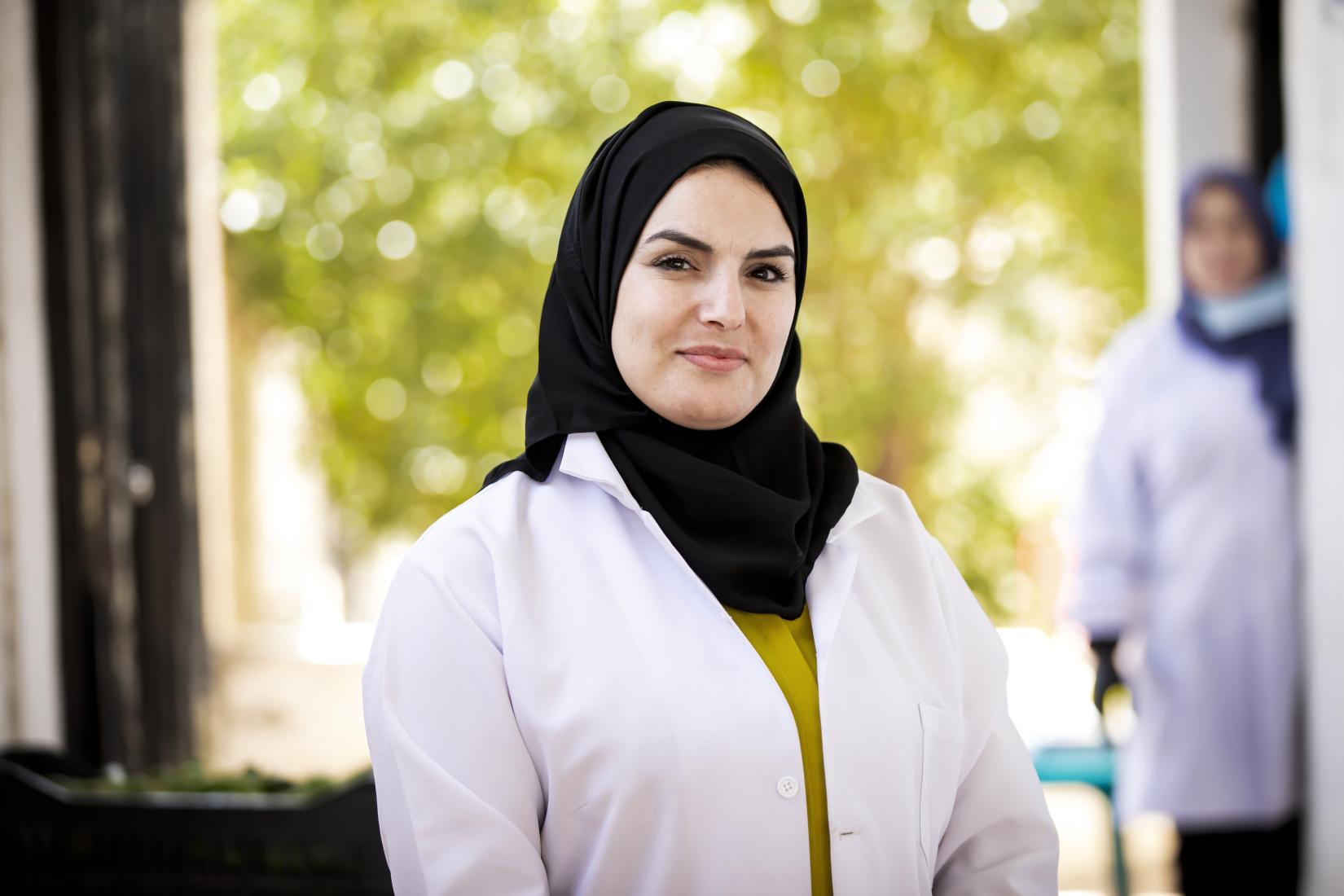
In the early morning light, Shireen is transported to work by a bus provided by the community-based organization running the kitchen alongside fellow women who, like her, are heading to their workplace. Here, they all play a part in preparing and packaging the school meals. This kitchen is not just a workplace; it is a lifeline that rescued Shireen from a history of uncertainty and self-doubt.
Shireen, a single mother of four, had never had a job before securing this one. Cultural norms had limited her to the confines of her home, discouraging her from seeking work. However, the opportunity in the kitchen became a turning point, breaking her free from the constraints of tradition. "In the beginning, it was merely a job to provide for my children," Shireen reflects, her voice tinged with gratitude. "This opportunity changed everything. Today, I am a woman who conquers fears and shatters barriers, and I am leading my own destiny," she adds.
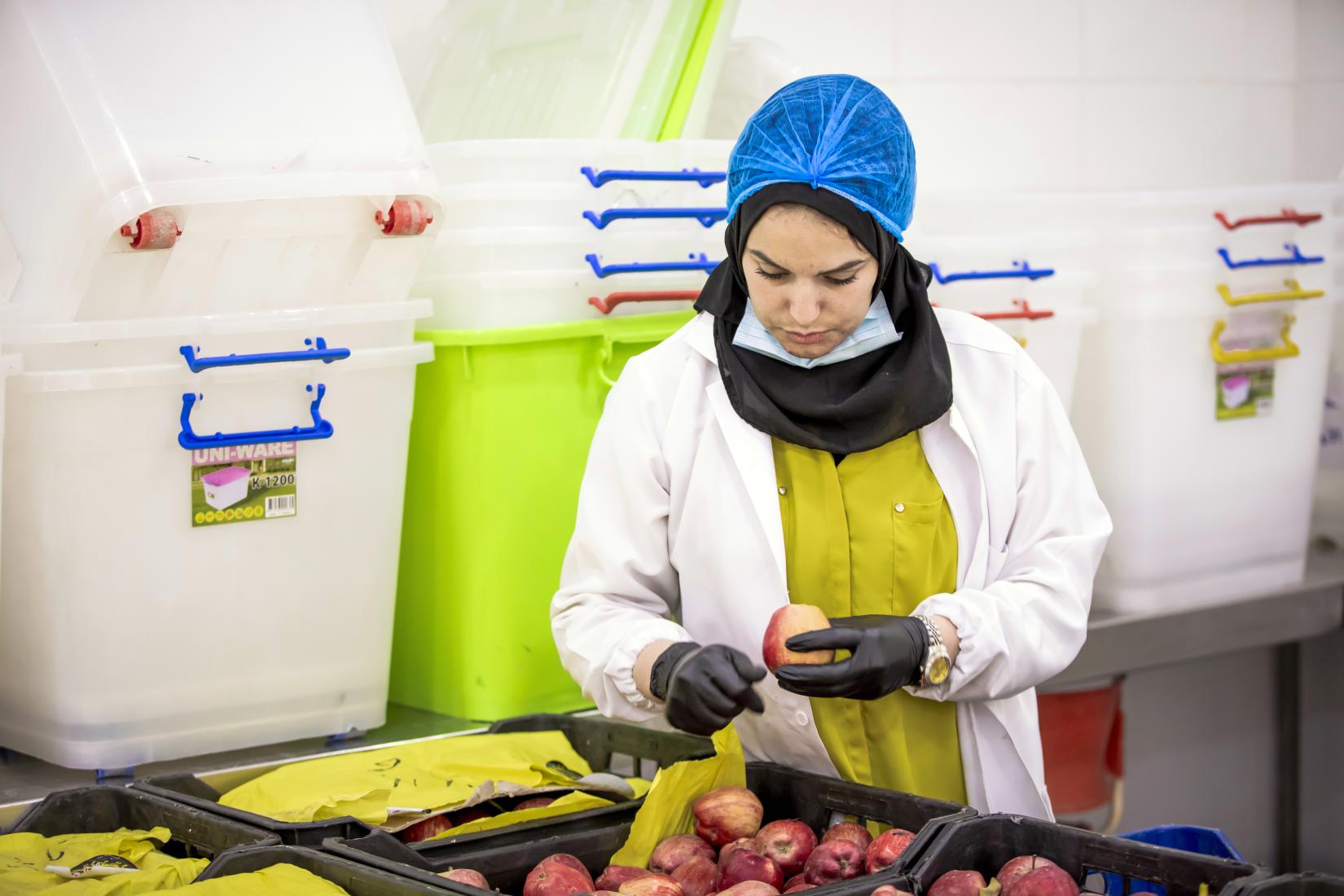
Shireen is among approximately 250 women formally employed in the kitchens, registered under the social security umbrella, and trained in food handling, safety, and hygiene protocols. For these women, the kitchen symbolizes more than just a workplace; it serves as a gateway to learning, economic independence, and community engagement.
No longer confined by fear or societal expectations, Shireen underwent a remarkable transformation, emerging as a symbol of strength within her community. "I am able to support my children’s education, and my eldest daughter is graduating from school this year." Empowered by newfound skills and confidence, she became a vocal advocate, unafraid to express her views and ambitions. "My message to my daughter and every woman out there is not to let fears or societal norms hinder us from pursuing our dreams and ambitions," Shireen adds.
Her story resonates with many, illustrating the transformative impact of empowerment and opportunity for women.
The kitchen workers are instrumental in ensuring daily meals for 90,000 vulnerable Jordanian and refugee children aged 5 to 12 in public schools. Every day, a delivery of freshly baked pastries and approximately 18 metric tons of fruits and vegetables arrives at the kitchens. Here, the women workers diligently sort, wash, and sanitize these ingredients before packaging them into individual meals using recyclable bags and sending them to schools.
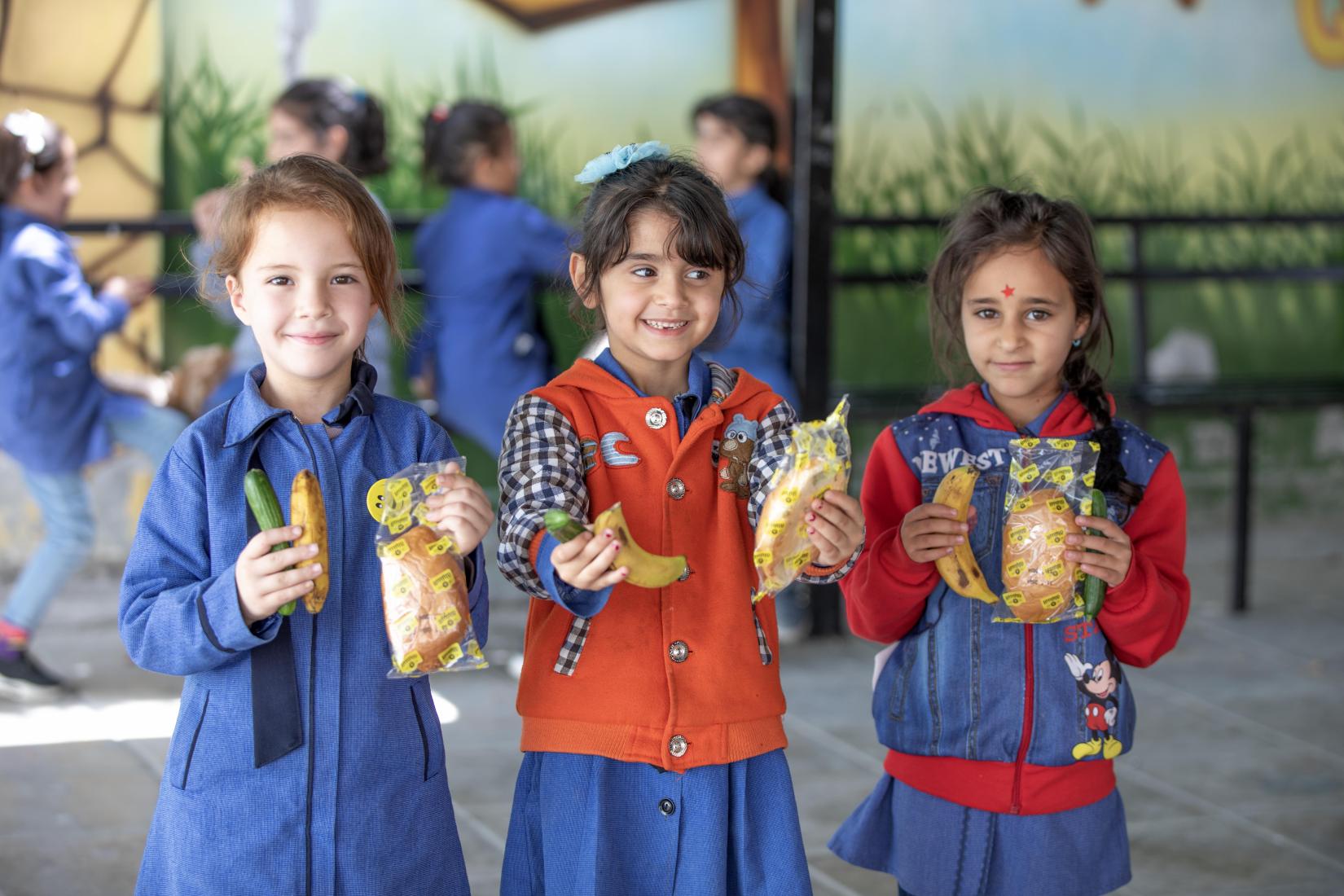
The positive impacts of this healthy school feeding model extend beyond the targeted children and the kitchen workers. This locally driven approach also contributes to the livelihoods of nearly 300 local farmers across 16 farms, 90 workers across five bakeries, 90 transporters, and 10 community-based organizations, while strengthening the supply chain and contributing to local economic development.
A recent impact evaluation conducted by WFP in collaboration with the World Bank reveals profound effects on schoolchildren and kitchen workers. Regular nutritious meals enhance children’s school attendance, dietary diversity, and overall energy levels. Among women working in the kitchens, the findings demonstrate increased income and savings, a greater willingness to remain employed, and more openness among male spouses regarding female employment, resulting in higher overall life satisfaction.
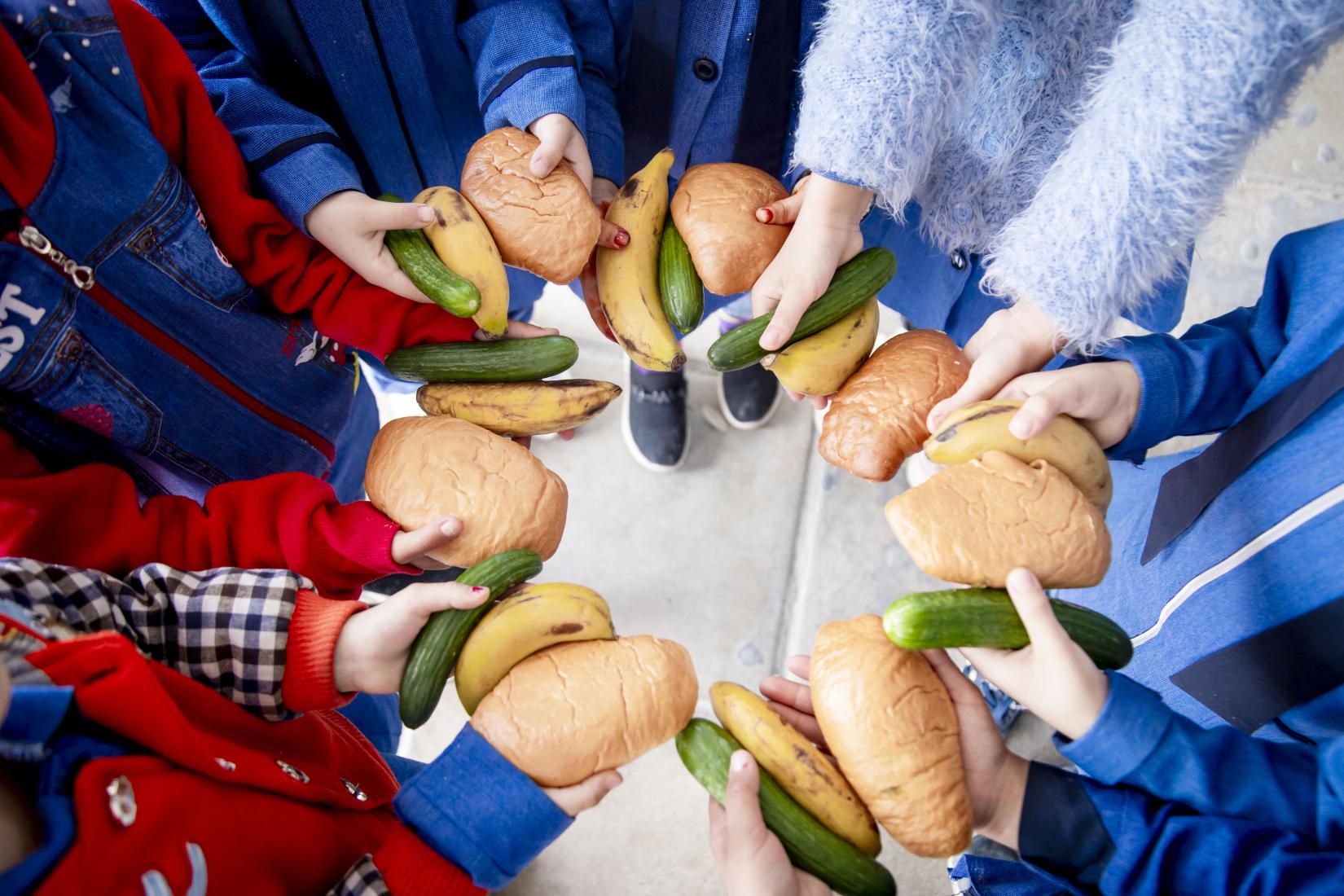
The Ramtha community-based kitchen exemplifies WFP's commitment to sustainable development by investing in women’s skills and capacities. Through this initiative, WFP not only improves individual lives but also strengthens entire communities. Each woman in the kitchen has a unique story of growth and resilience, reflecting the transformative power of opportunity.
The World Food Programme in Jordan has been supporting The Ministry of Education in implementing the National School Feeding Programme since 2013. Within the framework of the National School Feeding Strategy (2021-2025), the aim is to gradually expand the reach of the healthy meal model, implemented in collaboration with the Royal Health Awareness Society (RHAS), to 500,000 students by 2030.



